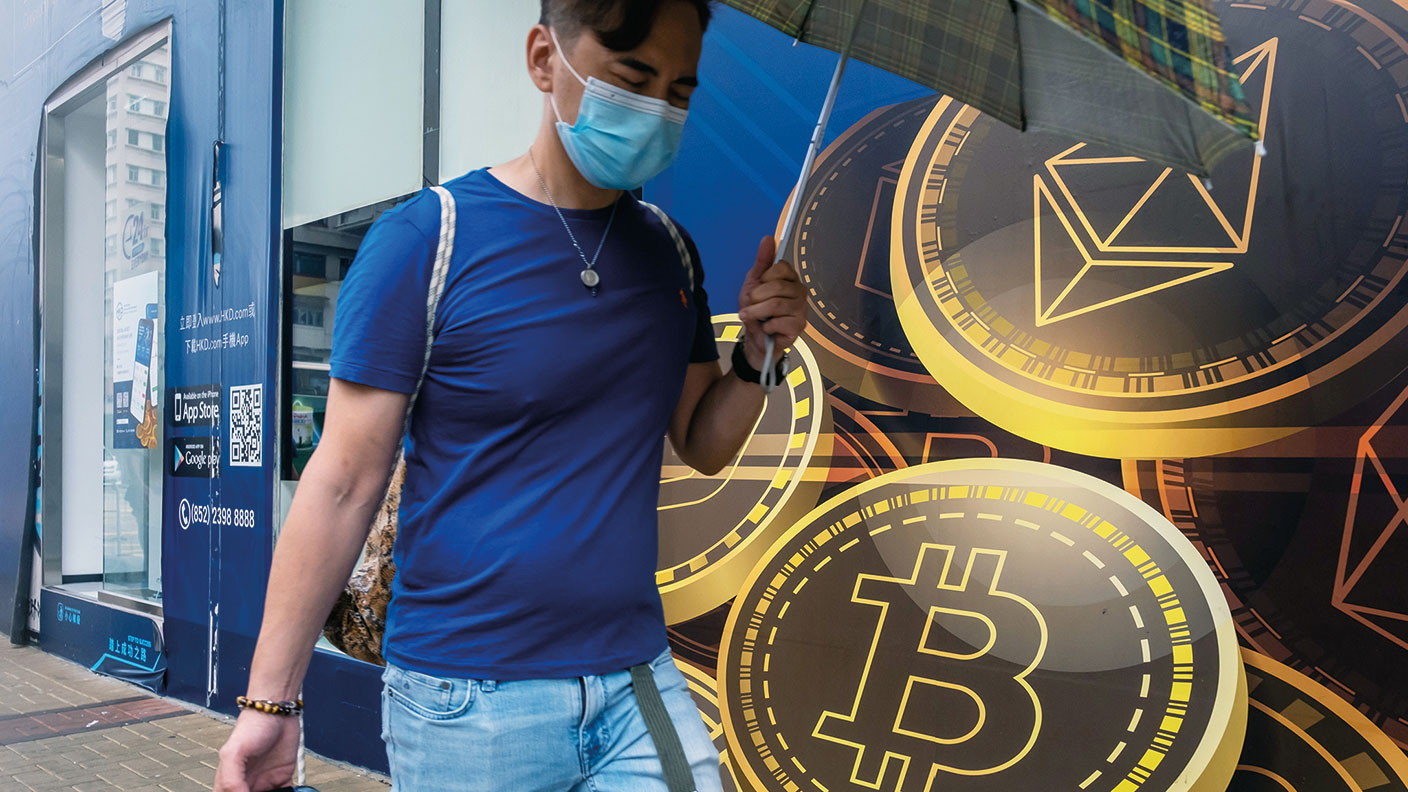China comes close to banning cryptocurrencies
Chinese regulators have effectively banned cryptocurrencies, declaring all transactions to be “illegal financial activities”.

Get the latest financial news, insights and expert analysis from our award-winning MoneyWeek team, to help you understand what really matters when it comes to your finances.
You are now subscribed
Your newsletter sign-up was successful
Want to add more newsletters?

Twice daily
MoneyWeek
Get the latest financial news, insights and expert analysis from our award-winning MoneyWeek team, to help you understand what really matters when it comes to your finances.

Four times a week
Look After My Bills
Sign up to our free money-saving newsletter, filled with the latest news and expert advice to help you find the best tips and deals for managing your bills. Start saving today!
Chinese regulators have moved one step closer to banning cryptocurrencies. On 24 September the People’s Bank of China (PBOC), the central bank, announced that “virtual currency-related business activities are illegal financial activities”. The bank blames cryptocurrency speculation for “breeding illegal and criminal activity”.
Beijing’s crackdown on cryptocurrencies has been going on since 2013, says Scott Nover for Quartz. Earlier this year it banned financial institutions from providing crypto-related services. That edict had sent Chinese bitcoin buyers onto overseas platforms instead. The new rules seek to close that loophole. “Crypto transactions and crypto services of all kinds are banned in China,” says Henri Arslanian of PriceWatehouseCoopers. “No room for discussion. No grey areas.” The measures don’t appear to amount to an outright ban on cryptocurrency possession, says Andrew Griffin in The Independent. But related activities are now heavily restricted. The PBOC has made clear that digital currencies are “not legal tender”. Bitcoin prices plunged by 6% on the news. But prices rebounded over the weekend, says Daren Fonda in Barron’s. Cryptocurrencies have made up the lost ground caused by the announcement.
Trading around $42,000 early this week, bitcoin has gained 30% since the start of the year but is down by one-third since hitting an all-time high in mid-April. A ban on transactions may not tank prices because “about 70% of all circulating bitcoin [is] now held by long-term holders, up from 59% in May”. For now, crypto markets appear to think that they can do without “China or its vast market”. Yet “whether that lasts remains to be seen” as other Asian countries such as Singapore also tighten the screws.
MoneyWeek
Subscribe to MoneyWeek today and get your first six magazine issues absolutely FREE

Sign up to Money Morning
Don't miss the latest investment and personal finances news, market analysis, plus money-saving tips with our free twice-daily newsletter
Don't miss the latest investment and personal finances news, market analysis, plus money-saving tips with our free twice-daily newsletter
Get the latest financial news, insights and expert analysis from our award-winning MoneyWeek team, to help you understand what really matters when it comes to your finances.
Alex is an investment writer who has been contributing to MoneyWeek since 2015. He has been the magazine’s markets editor since 2019.
Alex has a passion for demystifying the often arcane world of finance for a general readership. While financial media tends to focus compulsively on the latest trend, the best opportunities can lie forgotten elsewhere.
He is especially interested in European equities – where his fluent French helps him to cover the continent’s largest bourse – and emerging markets, where his experience living in Beijing, and conversational Chinese, prove useful.
Hailing from Leeds, he studied Philosophy, Politics and Economics at the University of Oxford. He also holds a Master of Public Health from the University of Manchester.
-
 Early signs of the AI apocalypse?
Early signs of the AI apocalypse?Uncertainty is rife as investors question what the impact of AI will be.
-
 Reach for the stars to boost Britain's space industry
Reach for the stars to boost Britain's space industryopinion We can’t afford to neglect Britain's space industry. Unfortunately, the government is taking completely the wrong approach, says Matthew Lynn
-
 Early signs of the AI apocalypse?
Early signs of the AI apocalypse?Uncertainty is rife as investors question what the impact of AI will be.
-
 8 of the best properties for sale with beautiful kitchens
8 of the best properties for sale with beautiful kitchensThe best properties for sale with beautiful kitchens – from a Modernist house moments from the River Thames in Chiswick, to a 19th-century Italian house in Florence
-
 Three key winners from the AI boom and beyond
Three key winners from the AI boom and beyondJames Harries of the Trojan Global Income Fund picks three promising stocks that transcend the hype of the AI boom
-
 RTX Corporation is a strong player in a growth market
RTX Corporation is a strong player in a growth marketRTX Corporation’s order backlog means investors can look forward to years of rising profits
-
 Profit from MSCI – the backbone of finance
Profit from MSCI – the backbone of financeAs an index provider, MSCI is a key part of the global financial system. Its shares look cheap
-
 'AI is the real deal – it will change our world in more ways than we can imagine'
'AI is the real deal – it will change our world in more ways than we can imagine'Interview Rob Arnott of Research Affiliates talks to Andrew Van Sickle about the AI bubble, the impact of tariffs on inflation and the outlook for gold and China
-
 Should investors join the rush for venture-capital trusts?
Should investors join the rush for venture-capital trusts?Opinion Investors hoping to buy into venture-capital trusts before the end of the tax year may need to move quickly, says David Prosser
-
 Food and drinks giants seek an image makeover – here's what they're doing
Food and drinks giants seek an image makeover – here's what they're doingThe global food and drink industry is having to change pace to retain its famous appeal for defensive investors. Who will be the winners?